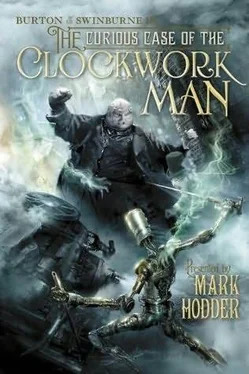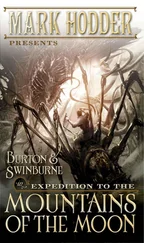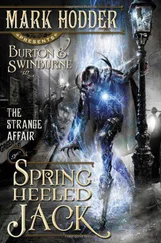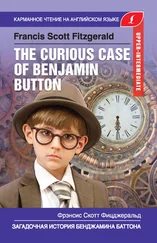Mark Hodder - The curious case of the Clockwork Man
Здесь есть возможность читать онлайн «Mark Hodder - The curious case of the Clockwork Man» весь текст электронной книги совершенно бесплатно (целиком полную версию без сокращений). В некоторых случаях можно слушать аудио, скачать через торрент в формате fb2 и присутствует краткое содержание. Жанр: Детективная фантастика, на английском языке. Описание произведения, (предисловие) а так же отзывы посетителей доступны на портале библиотеки ЛибКат.
- Название:The curious case of the Clockwork Man
- Автор:
- Жанр:
- Год:неизвестен
- ISBN:нет данных
- Рейтинг книги:3 / 5. Голосов: 1
-
Избранное:Добавить в избранное
- Отзывы:
-
Ваша оценка:
- 60
- 1
- 2
- 3
- 4
- 5
The curious case of the Clockwork Man: краткое содержание, описание и аннотация
Предлагаем к чтению аннотацию, описание, краткое содержание или предисловие (зависит от того, что написал сам автор книги «The curious case of the Clockwork Man»). Если вы не нашли необходимую информацию о книге — напишите в комментариях, мы постараемся отыскать её.
The curious case of the Clockwork Man — читать онлайн бесплатно полную книгу (весь текст) целиком
Ниже представлен текст книги, разбитый по страницам. Система сохранения места последней прочитанной страницы, позволяет с удобством читать онлайн бесплатно книгу «The curious case of the Clockwork Man», без необходимости каждый раз заново искать на чём Вы остановились. Поставьте закладку, и сможете в любой момент перейти на страницу, на которой закончили чтение.
Интервал:
Закладка:
“It bears Kenealy's signature and, believe it or not, what looks to be the Claimant's thumbprint. It's also witnessed by Jankyn and the butler, Andrew Bogle.”
“That's that, then.”
“What do you mean?”
“I mean there's nothing more we can do here, Algy. Kenealy and the Tichborne Claimant are obviously in league with the ghost of Lady Mabella, and they are now in possession of the South American Eye and the fragments of the Cambodian Eye. So we'll pack up and return to London, we'll investigate the Claimant's background, and we'll watch carefully to see what our enemies intend to do with those peculiar stones.”
S ir Richard Francis Burton had been in South America for three weeks. He was unshaven and his skin was dark and weather-beaten. He looked untamed and dangerous, like a bandit.
“Difficult times, Captain,” said Lord Palmerston softly as the king's agent sat down.
Burton grunted an agreement and studied the prime minister's waxy, eugenically enhanced features. He noticed that the man's mouth seemed to have been stretched a little wider and there were new surgical scars around the angles of his jaw, a couple of inches beneath the ears. They were oddly gill-like.
He looks like a blessed newt!
The two men were in number 10 Downing Street, the headquarters of His Majesty's government.
“How goes the war, sir?” he asked.
“President Lincoln has formidable strategists directing his army,” Palmerston responded, “but mine are better, and, unlike his, they aren't defending two fronts. Our Irish troops have already taken Portland and large sections of Maine. In the south, Generals Lee and Jackson have forced the Union out of Virginia. I wouldn't be at all surprised to receive Lincoln's surrender by Christmas.”
A great many people, Burton included, held the Eugenicist faction of the Technologist caste responsible for Great Britain's entry into the American conflict. Had the scientists left Ireland alone, it was argued, there would not have been such an overwhelming refugee problem; and if there had not been an overwhelming refugee problem, then Palmerston may have reacted rather less aggressively to the Trent Affair.
The Eugenicists had started sowing seeds in Ireland last March, around the time of the Brundleweed robbery.
It was an attempt to put an end to the Great Famine, which had been devastating the Emerald Isle since 1845. Nearly two decades of disease had obliterated the potato crop before spreading to other flora, leaving the island a virtual desert. The source of the blight remained a mystery, though its failure to cross to mainland Britain suggested a disease of the soil.
The Eugenicists, working with the botanist Richard Spruce, had planted specially adapted seeds at twelve test sites. These germinated within hours and the plants grew with such unexpected rapidity that they were fully mature within a fortnight. By the end of April, they'd blossomed and pollinated. During May, their seeds and spores spread right across the country, and by early July, from shore to shore, Ireland was a jungle.
Inexplicably, the plants confined themselves to the island; their seeds wouldn't germinate anywhere else. This was a stroke of luck, for, as with every other Eugenicist experiment, the benefits were accompanied by an unexpected side effect.
The new flora was carnivorous.
The experiment was an unmitigated disaster.
During June and July, more than fifteen thousand people were killed. Venomous spines were fired into them, or tendrils strangled them, or acidic sap burned away their flesh, or flowery scent gassed them, or roots jabbed into their bodies and sucked out their blood.
The scientists were at a loss.
Ireland became uninhabitable.
Its population fled.
During the middle months of summer, mainland Britain struggled with a massive influx of refugees. Wooden shanty towns were set up to house them in South Wales, along the edges of Dartmoor, in the Scottish Highlands, and on the Yorkshire Moors. They quickly deteriorated into disease-ridden slums-scenes of terrible squalor, violence, and poverty.
Lord Palmerston's solution to the problem was both ingenious and very, very dangerous.
In his mind's eye, Burton could picture the prime minister contemplating two reports, one entitled The Irish Crisis and the other The Trent Affair, and could imagine the glint in his eyes as a radical and daring scheme occurred to him.
The Trent Affair had begun the previous December, when two Confederate diplomats, John Slidell of Louisiana and James Mason of Virginia, had been dispatched to London to convince Palmerston that an independent Confederacy would establish a mutually beneficial commercial alliance with Great Britain. They'd been travelling on the British mail packet Trent when the Union ship USS San Jacinto intercepted it. The British vessel was boarded, searched-not without some rough handling-and the envoys taken prisoner.
This was viewed, right across Europe, as an outrageous insult and a blatant act of provocation.
Angrily, Palmerston demanded an apology from the Union.
While he awaited President Lincoln's response, he ordered the army to begin amassing its troops on the Canadian border and the Royal Navy to prepare for attacks on American shipping the world over.
Toward the end of January, Lincoln's secretary of state responded by setting Slidell and Mason free and by explaining, in a letter, that the interception and searching of the Trent, while conducted in an unfortunate manner, had, in fact, been perfectly legal according to maritime law.
Palmerston was in no way mollified. He called an emergency cabinet meeting, stamped into the room, slammed his top hat onto the table, and flew into one of his infamous tantrums. “I don't know whether you're going to stand this,” he screamed, “but I'll be damned if I do!”
The military buildup continued.
The prime minister ordered the construction of twelve shallow-draught ironclad steam battleships, designed specifically to operate in American coastal waters. Six new dreadnought-class rotorships were also built, all with bomb bays.
On the 4th of July 1862, Palmerston made two declarations. The first stated that Great Britain was now at war with Lincoln's Union. The second promised that any Irishman who agreed to join the British army would receive free transportation for his entire family to one of the Confederate States, plus two hundred pounds with which to purchase a home and start a new life.
In one fell swoop, he solved the immigration problem, relocated a homeless nation, and created one of the strongest and most willing armies the world had ever seen.
Even Napoleon III and Bismarck, both of whom had been threatening British interests in Europe, reluctantly admitted that the prime minister was a genius, an arch manipulator, and a man they'd rather not cross.
Abraham Lincoln sent a lengthy letter of protest, which contained the sentence: If you are against the Union, you support slavery.
Palmerston made history with his terse, five-word reply: To hell with you, sir!
Sir Richard Francis Burton hated slavery with a passion. He'd seen with his own eyes the wholesale destruction, humiliation, and misery it wrought-had seen the deep wounds that scarred Africa. It prompted him to now ask: “What of the slave trade, Prime Minister?”
Palmerston's right eyelid twitched. He drummed his long manicured fingernails on the mahogany desktop.
“I didn't call you here to examine my policies.”
“Nor am I doing so. I'm merely curious to know whether there is a policy in this regard.”
“I'll not have your impudence!”
“You misunderstand me. There is no challenge or disapproval in my words. I'm aware that Lincoln's Crittenden-Johnson Resolution states that his army is fighting to preserve the Union and not to end slavery. I am also aware that the Confederates mean to continue that filthy trade. So where do you stand?”
Читать дальшеИнтервал:
Закладка:
Похожие книги на «The curious case of the Clockwork Man»
Представляем Вашему вниманию похожие книги на «The curious case of the Clockwork Man» списком для выбора. Мы отобрали схожую по названию и смыслу литературу в надежде предоставить читателям больше вариантов отыскать новые, интересные, ещё непрочитанные произведения.
Обсуждение, отзывы о книге «The curious case of the Clockwork Man» и просто собственные мнения читателей. Оставьте ваши комментарии, напишите, что Вы думаете о произведении, его смысле или главных героях. Укажите что конкретно понравилось, а что нет, и почему Вы так считаете.












